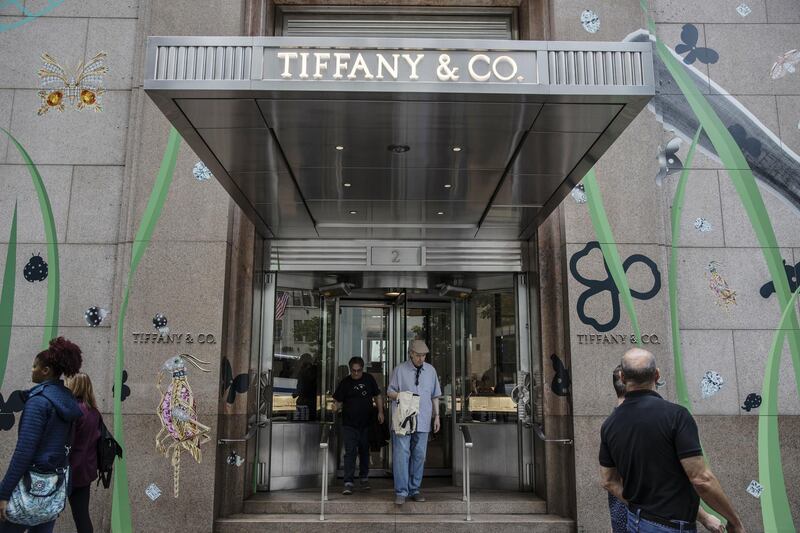Tiffany & Co reported first-quarter sales that fell short of projections, while warning that tariffs will rise on the jewellery it sends to China from the US.
Comparable sales, a key retail metric, fell 2 per cent worldwide on a constant currency basis, missing the average of analysts’ estimates for a 1.2 per cent drop from Consensus Metrix.
The company’s gross margin also shrank and fell short of analyst estimates.
Growing tension between the US and China have taken a toll on the jewellery maker.
Over the holidays, Tiffany said it was hurt by a drop in spending by Chinese tourists, an important customer group.
The company warned this situation has persisted, with “dramatically lower worldwide spending attributed to foreign tourists”.
By contrast, the world’s 100 biggest luxury goods companies, which include LVMH, Estee Lauder and Chanel, generated 10.8 per cent more in revenues for the fiscal year ending June 2018.
Sales reached a combined $247 billion (Dh906bn), despite disruption to retail from e-commerce and an economic slowdown in major markets, Deloitte said.
Globally, retailers have been hit by economic uncertainty in many of the major world markets such as China, the eurozone and the US.
They have also had to grapple with the rise of digitalisation and e-commerce, which has posed a challenge to shop-based companies,
It forced many to invest in "omni-channel" strategies, which entail selling across e-commerce, mobile and social media platforms.
But Tiffany's sales to local customers improved, led by China, chief executive Alessandro Bogliolo said.
Mr Boglioli predicted Tiffany “is positioned for improving trends in the second half of 2019”.
While Asia was a bright spot with flat same-store sales outpacing estimates for a drop, most other region performed worse than expected.
In the Americas, a comparable sales decline of 4 per cent was almost double the estimates.
The company sees earnings coming under pressure in the second half, in part because of tariffs rising to 25 per cent on the jewellery it sends to China from the US.
Tiffany has also quietly gone on a hiring spree in the past two years and is increasing its retail space and relocating 15 stores.
Tiffany shares fell 2.7 per cent to $88.49 in pre-market trading, paring a steeper earlier decline.








